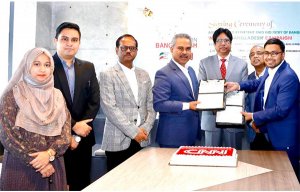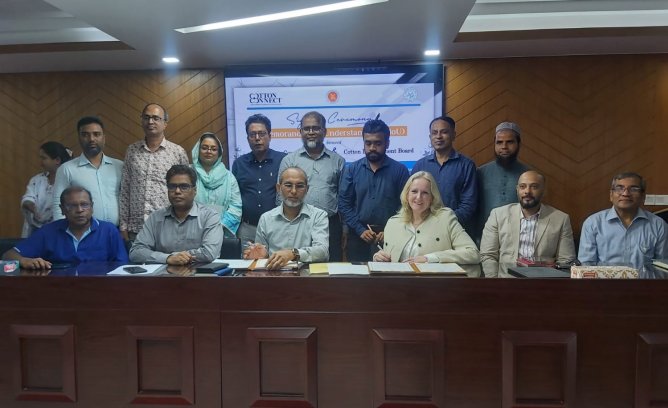
CNN to promote Bangladesh’s RMG sector
CottonConnect and Cotton Development Board sign MoU for sustainable cotton.

18th August 2025
Knitting Industry
|
Dhaka, Bangladesh
CottonConnect has signed a Memorandum of Understanding (MoU) with Bangladesh’s Cotton Development Board (CDB) to improve the quality, sustainability, marketability and traceability of Bangladeshi cotton. The partnership aims to strengthen links between cotton production and the country’s globally significant clothing and textile manufacturing industry.
CottonConnect works to make cotton supply chains more sustainable, transparent and equitable, while the CDB, established in 1972, is tasked with expanding and developing cotton cultivation in Bangladesh. With around 60,000 farmers across 39 districts already growing cotton, the collaboration will combine CottonConnect’s expertise in sustainable supply chains with CDB’s research and development capacity.
The agreement outlines shared objectives including enhancing cotton fibre quality, implementing regenerative farming practices, improving working conditions for farmers, and building a fully traceable cotton supply chain. It also seeks to expand cotton use into high-value sectors such as medical textiles, technical fabrics and bio-composites, while preparing farming systems to be more climate-resilient.
“This collaboration is a major step forward in aligning Bangladesh’s cotton sector with global sustainability and quality benchmarks,” said Alison Ward, CEO of CottonConnect. “By integrating cotton improvements with the country’s powerful garment industry, we are creating a future where Bangladeshi cotton is not only competitive but also ethically and environmentally sound.”
Md. Rezaul Amin, Executive Director of the CDB, added: “By focusing on farmer empowerment, climate resilience, technological innovation, and market diversification, this MoU promises to benefit both producers and consumers while contributing to environmental stewardship.”

Business intelligence for the fibre, textiles and apparel industries: technologies, innovations, markets, investments, trade policy, sourcing, strategy...
Find out more